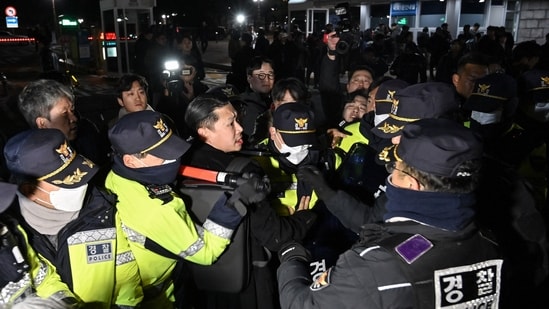Understanding Martial Law in South Korea: Past and Present
South Korea, a nation renowned for its vibrant democracy and technological advancements, has faced episodes in its history where martial law was declared. The term martial law often sparks questions about its meaning, implications, and historical significance, particularly when associated with South Korea. This article delves into the concept of martial law, its historical occurrences in South Korea, and recent concerns surrounding it.

On December 3, 2024, South Korean President Yoon Suk Yeol declared martial law, citing threats from alleged “anti-state” activities and supposed collusion with North Korea by opposition parties. The move followed accusations that the opposition was disrupting government processes and undermining South Korea’s democratic structure. This marked the first martial law declaration in the country since 1980.
The declaration faced immediate backlash. The opposition-controlled National Assembly held an emergency session and unanimously voted to rescind the martial law order. However, military officials stated that the law would remain effective unless formally lifted by the president. Hours later, President Yoon complied and rescinded the martial law declaration following public and political pressure.
The decision sparked widespread protests, criticism from international observers, and calls for Yoon’s resignation. Domestically, the opposition accused Yoon of abusing power, with prominent figures like Lee Jae-myung labeling the move authoritarian. Some in the military reportedly expressed reservations about enforcing the decree, further weakening its support【12】【13】【14】.
This episode adds to a series of controversies surrounding Yoon’s administration, including low approval ratings, opposition to economic and foreign policies, and ongoing corruption allegations. Many analysts predict that this event will cement his status as a “lame-duck” president for the remainder of his term【13】【14】.
What Is Martial Law?
Martial law refers to the temporary imposition of direct military control over civilian authorities during emergencies, such as war, natural disasters, or civil unrest. In such situations, civil rights are often suspended, and military officials may enforce laws directly.
Key Definitions:
- Martial Law Meaning: A legal framework used during emergencies where normal government operations are replaced by military authority.
- Emergency Martial Law: A form of martial law enacted during extreme crises, often involving heightened restrictions on freedoms.
Historical Instances of Martial Law in South Korea
South Korea has declared martial law several times, most notably during periods of political turmoil:
1. Korean War (1950–1953)
During the Korean War, martial law was used to maintain order amid the chaos of conflict with North Korea.
2. The 1980 Gwangju Uprising
In May 1980, South Korea declared martial law nationwide following the assassination of President Park Chung-hee. The military, led by General Chun Doo-hwan, violently suppressed pro-democracy demonstrations in Gwangju, leading to hundreds of deaths. This tragic event is a poignant reminder of the risks associated with military rule.
3. 1979–1980 Political Transition
After President Park’s death, South Korea faced political uncertainty. General Chun expanded martial law, dissolved parliament, and cracked down on opposition, consolidating his power.
Why Is Martial Law in South Korea Significant?
Martial law in South Korea often marks turning points in its modern history. These instances have shaped its democratic evolution, highlighting the tension between military control and civilian governance.
2024: Speculations About Martial Law
Is South Korea Under Martial Law?
Recent discussions have raised concerns about potential martial law declarations, particularly amid tensions with North Korea or domestic unrest. However, as of now, no martial law has been declared by President Yoon Suk Yeol.
Why Would South Korea Declare Martial Law?
Factors that might lead to such a declaration include:
- Heightened threats from North Korea.
- Large-scale civil protests or unrest.
- A state of emergency, such as a natural disaster.
Economic Implications
A declaration of martial law could significantly impact South Korea’s economy. Key indicators, such as the dollar-to-won exchange rate and Samsung’s stock prices, are sensitive to political stability. Any disruption could affect both domestic and international investor confidence.
FAQs About Martial Law in South Korea
Q: What is martial law in South Korea?
A: Martial law is a legal measure that allows military authorities to take over governance temporarily during crises.
Q. Has South Korea declared martial law recently?
A: Yes, South Korea has declared martial law in Yesterday.
Q: How does martial law affect citizens?
A: Martial law often suspends civil liberties, such as freedom of assembly and press, and imposes military rule.
Q. What happened during the Gwangju Uprising?
A: In 1980, martial law led to the violent suppression of pro-democracy protests in Gwangju, resulting in widespread casualties.
Conclusion
Martial law in South Korea is deeply intertwined with its historical struggles for democracy. While the nation has made significant strides, the specter of martial law serves as a reminder of the balance needed between security and freedom. Keeping an eye on South Korea’s evolving political landscape is essential to understanding its future.



